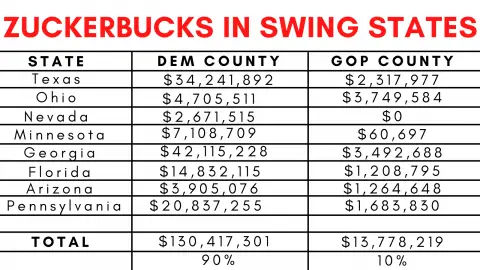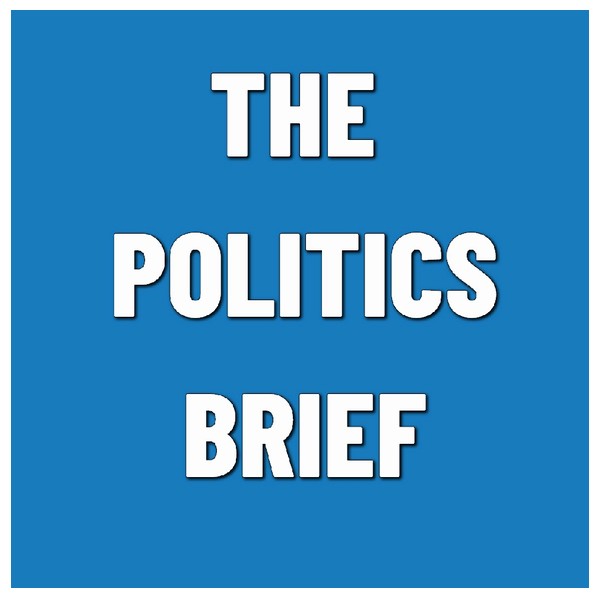President Biden’s executive order aimed at increasing voter turnout is now being challenged in what one government watchdog called “arguably the most important election integrity lawsuit in the country.”
The lawsuit filed in federal court seeks to halt the implementation of President Biden’s executive order on the election immediately.
The plaintiff in the action is Republican state Rep. Dawn Keefer, leader of the Pennsylvania Freedom Caucus. Keefer and other state legislators claim that Biden’s executive order, as well as steps taken by Pennsylvania Governor Josh Shapiro, a Democrat, usurp the lawmakers’ jurisdiction.
Lawyers for the Biden and Shapiro administrations on Wednesday filed to dismiss the lawsuit, known as Keefer, et al., v. Biden, et al., claiming that the lawmakers lack standing and that executive actions on state elections have previously been permitted by the Pennsylvania legislature.
“State legislators have rights granted to them in the Constitution, so we do have standing in federal court. The irreparable harm is that they are changing the way elections are being facilitated,” Keefer told The Daily Signal. “Now, we may have authorized them to take action. We never authorized them to break the law.”
The plaintiff’s complaint seeks a preliminary injunction to prevent the executive order’s execution immediately. There are plaintiffs joining the lawsuit who are not Freedom Caucus members.
The lawsuit filed in the United States District Court for the Middle District of Pennsylvania claims that Biden’s executive order directing federal agencies to collaborate with private, nonprofit groups on get-out-the-vote efforts violates Act 88, a state law that prohibits private money from funding election administration.
The Pennsylvania General Assembly enacted the bill in reaction to subsidies to local and state election offices in 2020, which were indirectly funded by Facebook founder Mark Zuckerberg through his Center for Tech and Civil Life that analysis shows increased turnout predominately in Democratic-dominated districts.


“The president gave his directive to all of his agencies that they are supposed to facilitate voter registration through third-party agencies, that we can’t get the contracts to or or we don’t know what any of the details are, who they’re working with, and how,” Keefer said.
“Then there’s the question of: Is the president interjecting here in an election where he’s on the ballot? That’s another issue that you have there,” she added. “Are you trying to interfere in an election where it directly impacts or affects you?”
The lawsuit is presided over by U.S. District Judge Jennifer Wilson, who is an appointee of former President Donald Trump.
“The PA state legislators have, through proper legislative acts, passed a law that prohibits the influence of third-party entities in elections,” the suit notes, but “Biden’s executive order contradicts Pennsylvania state election laws.”
The Biden administration has veiled its executive order to get out the vote in the 2024 election in secrecy.
“Absolutely they are hiding because that’s what we were asking for, to take a look at these third-party contracts. How are they engaging? Who are they engaging with?” Keefer remarked.
“And then not only are they not publicly saying or bragging about ‘Here’s what we’re doing for voter access,’” she continued, “but they’re engaging in these services and you’re having to file Freedom of Information Act [requests] in order to see what third parties they’re engaging with and what the contracts are for specifically.”
According to the lawsuit, “President Biden does not have the unilateral power to oversee and participate in making legislative decisions regarding the time, place, and manner of presidential and congressional elections, including the registration of electors in Pennsylvania.”
It continues, “The president of the United States does not have the power to usurp the authority of Pennsylvania legislators with regard to the registration of Pennsylvania voters, as Article VII, Section 1 of the Pennsylvania Constitution clearly places the duty of ‘regulating the registration of electors’ on the [Pennsylvania] General Assembly.”
The United States Supreme Court ruled last year in Moore v. Harper that state legislature election judgments are open to judicial review. However, the plaintiffs in the Pennsylvania case point to the Supreme Court majority’s statement that “it is the state legislatures that must provide a complete code for congressional regulations relating to elections.”
NOW READ:
MTG calls for the Expulsion of Republican Congressman Mike Gallagher






